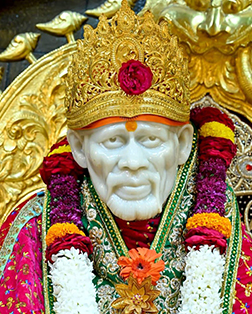
Living Karma Yoga: The Art of Work Without Attachment
Karma yoga is a way of giving or doing something without waiting for the consequences or hoping for something in return. It is a practice of giving back to the communities of which you are a part in the purest and most selfless form. Performing seva, a spiritual service, is an act of kindness and generosity that neither demands nor expects reciprocation. The principles of Karma yoga teach you that if you can perform the most trivial, ordinary or greatest task without attaching yourself to the fruits of your deed, you are already on the Karma yoga path to union with the self. Hence, actions performed selflessly in full focus and awareness that do not stem from the expectation of a favourable outcome lead you towards the way of good karma and spirituality.
Karma Yoga in Bhagavat Gita emphasizes performing actions without being attached to their outcomes o results. It teaches you that the focus of your action should be solely on the purpose and the intention rather than on what you achieve through that action. Karma Yoga teaches you to engage with the world selflessly and to live a balanced and meaningful life while staying connected to your spiritual core.
The Four Principles of Karma Yoga

Here are the principles of Karma yoga that everybody should know:
1. Duty: In Karma Yoga, duties are known as dharma. Hence, all Gods of Hinduism teach you to prioritize them while remembering that your highest obligation is to yourself. Ensure your well-being to support others. Perform every duty with diligence and your best efforts without expecting anything in return.
2. Ego: Ego shapes your self-image, influencing thoughts and actions based on likes, dislikes, and desires. While ego can drive performance, it can also distort reality and cloud understanding. Hence, to achieve karma yoga, you must emphasize the need for selfless action and ego management.
3. Attachment: Karma Yoga is about doing your duty impartially without being attached to the fruits of your actions. Hence, the principles of karma yoga teach us that you enjoy the tasks and perform them with dedication, but don’t wait for a favourable outcome. Your focus should be on the duty, without concern for the result or the process.
4. Expectation of Reward: Most people tend to perform duties expecting something in return, often in the form of a pay check, recognition or even love and gratitude. But when you act without expecting rewards, the result doesn’t influence your actions but only brings you a feeling of achievement.
How to prepare yourself for Karma Yoga

If you’re wondering how to practice karma yoga, here’s what you can do:
1- Boil all your thoughts, emotions, and intentions in the inner pot of Self-awareness to clarify.
2- Start by stirring your actions with the intention to serve others, blending love, gratitude, and kindness into your actions.
3- While engaging with the world, mix your actions with stillness, infusing them with a flavour of peace and grace.
4. You can ignite your passion and enthusiasm, fuelling your actions with joy and aliveness.
5. Keep this fire steady, ensuring your actions remain authentic and heartfelt.
6. Be patient and trust in divine timing, allowing life to unfold naturally.
7. Let your life simmer with trust, knowing that everything is working out for good.
8. Season them with noble virtues of courage, dignity, resilience, and selfless service to your life, elevating your selfless actions into a sacred offering.
Benefits of practicing Karma Yoga

While you should not bind yourself with the outcomes of karma yoga, here are the benefits that performing karma yoga and mantra chanting can bring you:
Purifies our thoughts
To embark on the journey of Karma Yoga, you must first purify your thoughts and heart. There is this ancient practice of karma yoga that teaches you to let go of the negativity that clouds your mind and heart, allowing positive energy and thoughts to flourish. Through Karma Yoga, you learn to release your destructive emotions like anger, revenge, pride, and ego, creating space for unconditional love and compassion to resonate within you. As you cultivate this inner purity, it radiates outward, changing your surroundings and filling them with uplifting vibrations.
It gives us a fulfilled life
Karma Yoga’s meaning lies in learning how to detach yourself from worldly pleasures and surrender to the Eternal One. This gives you the freedom from the bonds of worldly pleasures, liberating you from ignorance and your limited sense of identification. The sooner you will know how to perform karma yoga in daily life the faster you will be gifted with a sense of fulfilment that can only come when the soul and the mind are at peace. By performing your duties sincerely and attentively, you prepare yourself for eternal freedom and fulfilment of the soul.
It teaches us to get rid of negativity
In order to consider the dedication of work done by you, your intentions have to be pure, doing the deed in the right spirit. In the karma yoga path, there is no place for anger, jealousy and ego; hence, the only way to reach the end is through relentless work by releasing the negative emotions that bind us from progressing. As soon as these negative emotions leave our hearts, positive vibrations and virtues enter inside to take us towards good karma and spirituality. By getting rid of negative emotions, traits like humility, tolerance, love, and compassion take place in your heart to become one with the Creator.
Karma Yoga in Bhagavat Gita is explained in Chapter 3, where Lord Krishna advises Arjuna on the importance of acting without hoping for a desirable outcome. Lord Krishna says, “You have a right to perform your duties, but not to the results” (Bhagavad Gita 2.47). Hence, the dedication to work that you do is what shapes you as a person and not the result of it, reminding you to fulfil your duties without focusing on rewards. This shows detachment does not necessarily mean avoiding the consequences of your actions, but it means acting with commitment but not being fixated on the outcomes. Hence, as long as you can perform your task with pure intentions, detaching yourself from any reciprocation, you are on the karma yoga path.

















